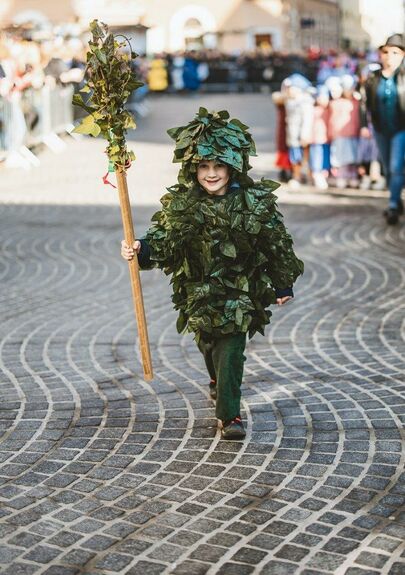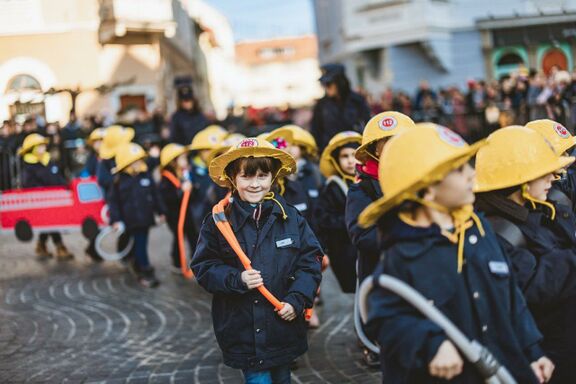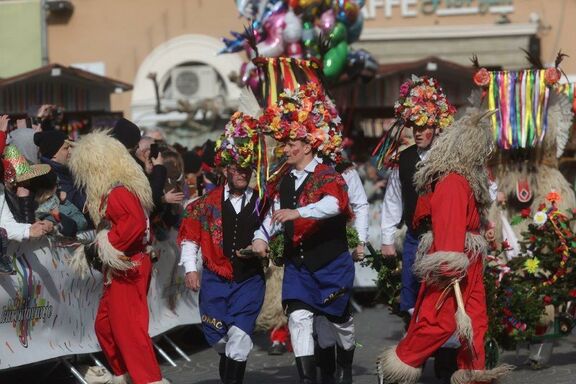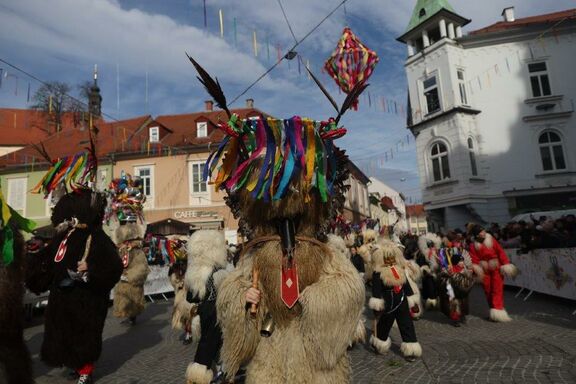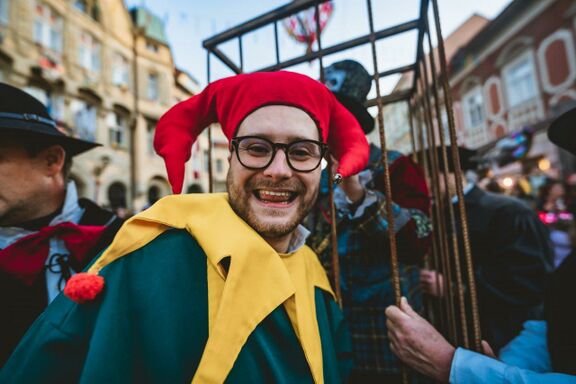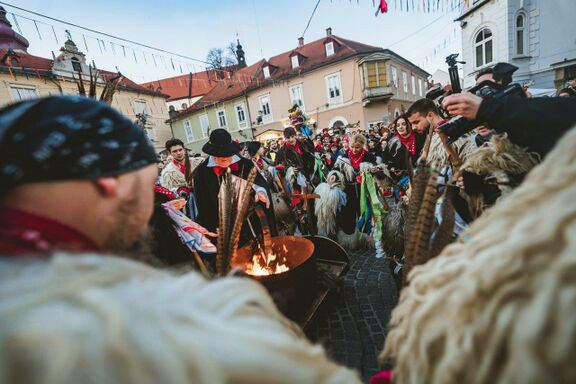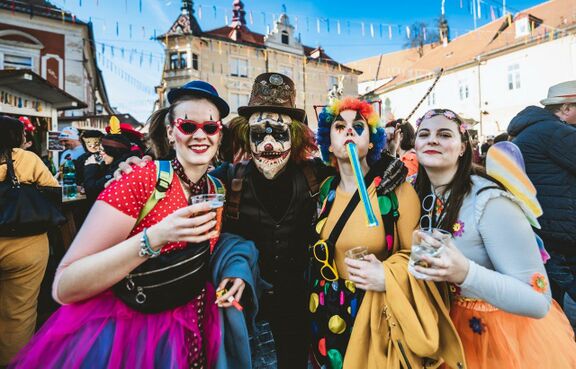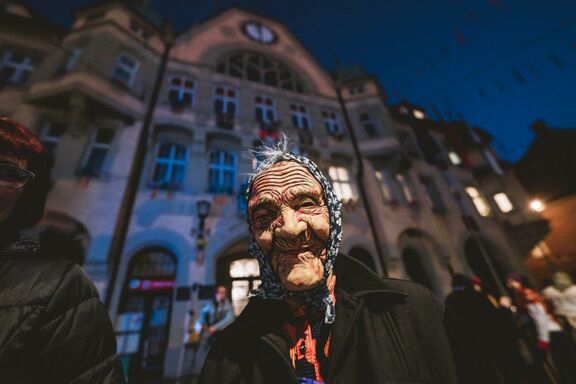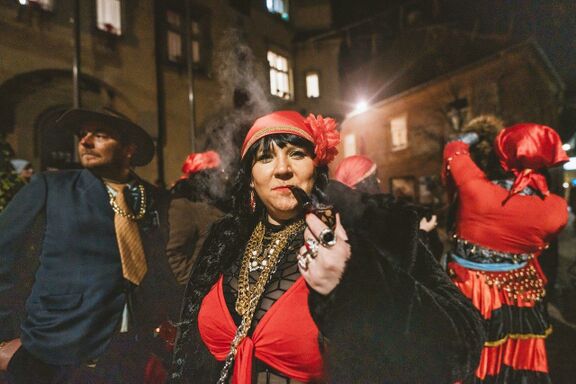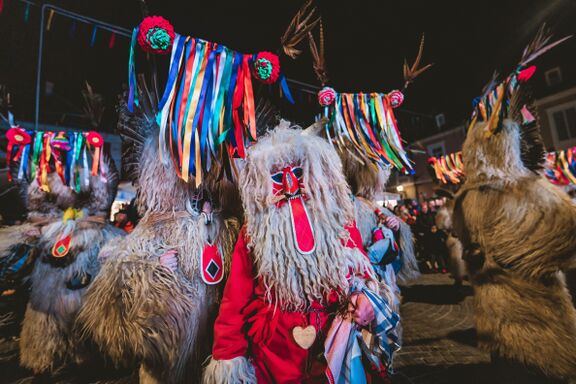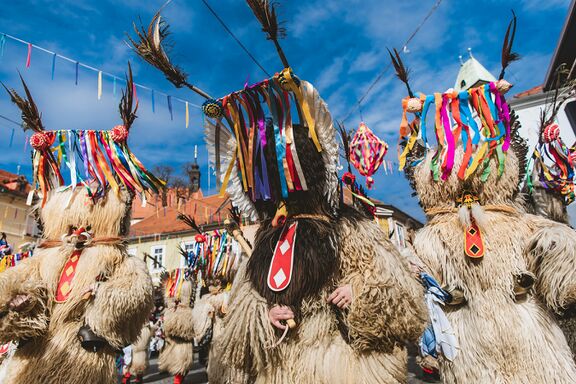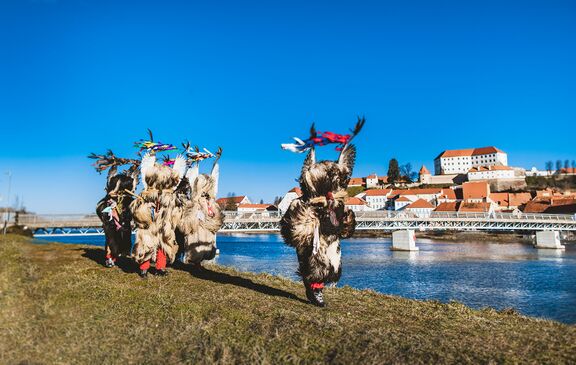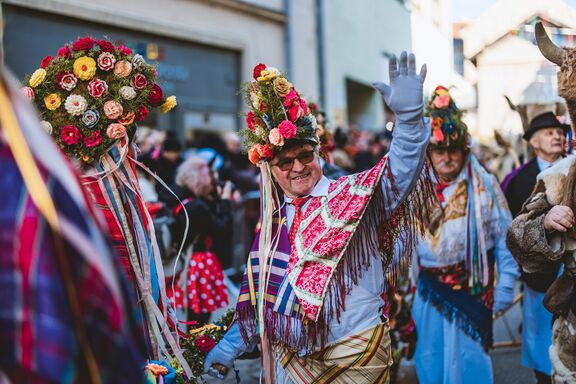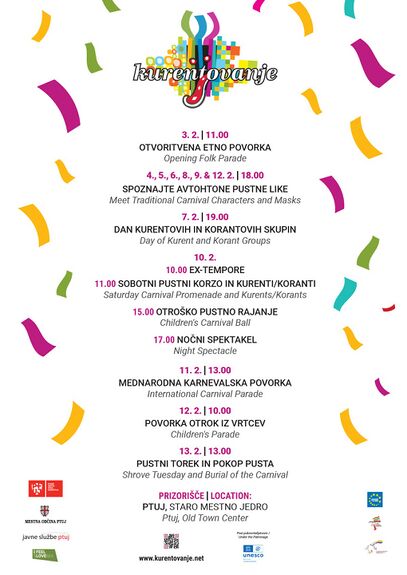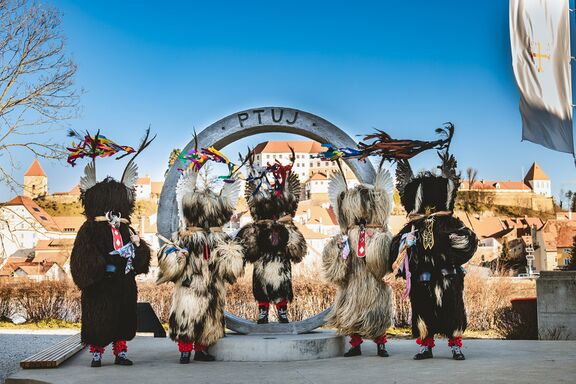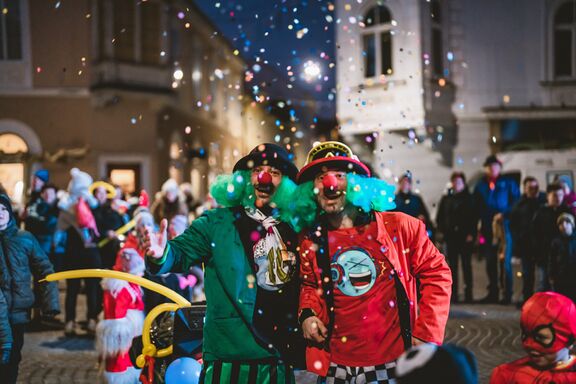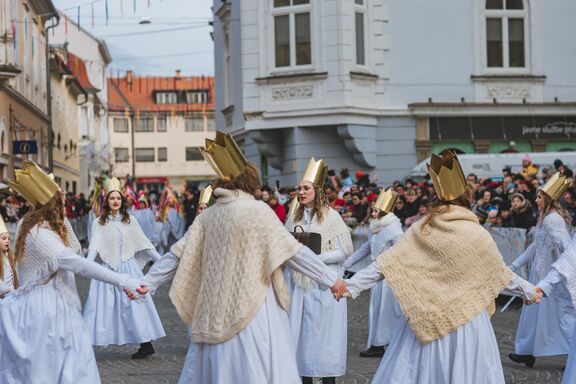Difference between revisions of "Kurentovanje"
| Line 29: | Line 29: | ||
}} | }} | ||
| − | {{Teaser| | + | {{Teaser| |
{{Image|Kurentovanje.net 07 photo C. Goznik.jpg}} | {{Image|Kurentovanje.net 07 photo C. Goznik.jpg}} | ||
Revision as of 12:46, 17 January 2013
-
8 Mar 2014
The first big Slovene carnival in London, with Kurents from Ptuj and a concert by Zoran Predin, supported by the Embassy of the Republic of Slovenia London,
-
1 Mar 2014
The Second Annual Cleveland Kurentovanje, supported by the Embassy of the Republic of Slovenia Washington and Consulate General of the Republic of Slovenia in Cleveland, Ohio,
-
to
22 Feb 2014
23 Feb 2014
Kurents from the Ethnographic Society Kurent Ptuj at the traditional carnival Mulhouse, supported by the Embassy of the Republic of Slovenia Paris,
-
23 Feb 2013
-
to
6 Feb 2012
28 Feb 2012
Month of Culture: two publications related to Slovene art and heritage, Kurentovanje visiting Zagreb, donation of the chair Rex to the Croatian Museum of Arts and Crafts, co-organised by the Embassy of the Republic of Slovenia Zagreb
The origins
The name comes from the festival's central figure, the Kurent, who in earlier times was believed to have the power to chase away winter and usher in spring. The origins of the Kurent and Kurentovanje festivities are obscure, and may have come from earlier Slavic, Celtic or Illyrian customs. Similar traditions are found throughout the region, in parts of Croatia, Hungary, Serbia, Bulgaria and elsewhere. The costume is simple: a sheepskin hat and outfit, cow bells hanging from a chain belt, red or green wool socks and black boots. However, the creation of the Kurent mask is a major folk art in Slovenia, although there are now only two masters of Kurent masks left – Master Klinc from Spuhlja and Master Zelenik from Markovci. The mask is made of leather, with two holes cut out for the eyes and a hole cut out for the mouth. The holes are surrounded with red paint. A trunk-like nose is attached along with whiskers made of twigs and teeth made of white beans. The final touch is a long, red tongue.
Studies of the Kurent tradition have been conducted at Ptuj – Ormož Regional Museum and BISTRA Scientific Research Centre, Ptuj.
European Capital of Culture 2012
Kurentovanje Festival has been included in the programme of the Maribor, European Capital of Culture 2012, Ptuj being one of its partner cities. The aim is to turn the festival in the largest ethno carnival in Europe. The ethnological guidelines were developed by Janez Bogataj and Aleš Gačnik, two scientists who acknowledge the constant metamorphoses and transformations of this tangible heritage.
See also
- Municipality of Ptuj
- Ptuj – Ormož Regional Museum
- BISTRA Scientific Research Centre, Ptuj
- Maribor, European Capital of Culture 2012
External links
- Kurentovanje Festival website (in English)
- Municipality of Ptuj



